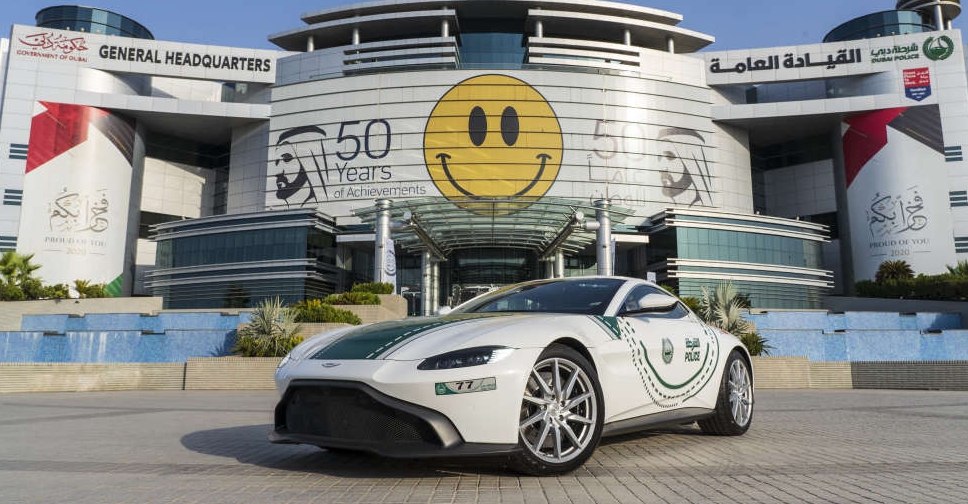
The Aston Martin Vantage has officially joined the Dubai Police fleet.
The agile, performance-driven Vantage will be seen on Dubai’s roads alongside an enviable collection of sports and supercars used to service the police force and drive public engagement.
It joins the ranks of other super cars amongst the Dubai Police fleet, including the Maserati GranTurismo, Bugatti Veyron and Lamborghini Aventador.
The Dubai Police Vantage features a custom ‘77’ number plate, the number 7 a nod to the UAE’s seven Emirates as well as the British marque’s long-standing association with the world’s most famous secret agent, James Bond – just in time for the release of the highly anticipated No Time to Die movie next month.
The current model features a 4.0-litre twin-turbocharged V8 engine with a peak power output of 503BHP and a torque peak of 505lb-ft, mated to a rear-mounted 8-speed automatic gearbox manufactured by ZF.
This Vantage can accelerate from 0-100 km/hr in 3.5 seconds, witth a top speed of 314 km/hr.
The Dubai Police Vantage will soon make its event debut, being showcased alongside other models in the force’s fleet at the highly anticipated EXPO 2020 in October 2021.




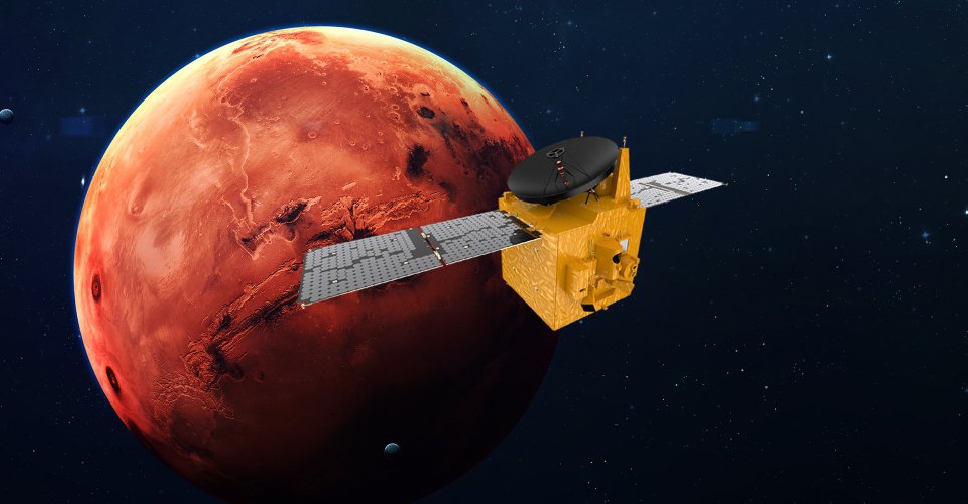 UAE extends Emirates Mars Mission until 2028
UAE extends Emirates Mars Mission until 2028
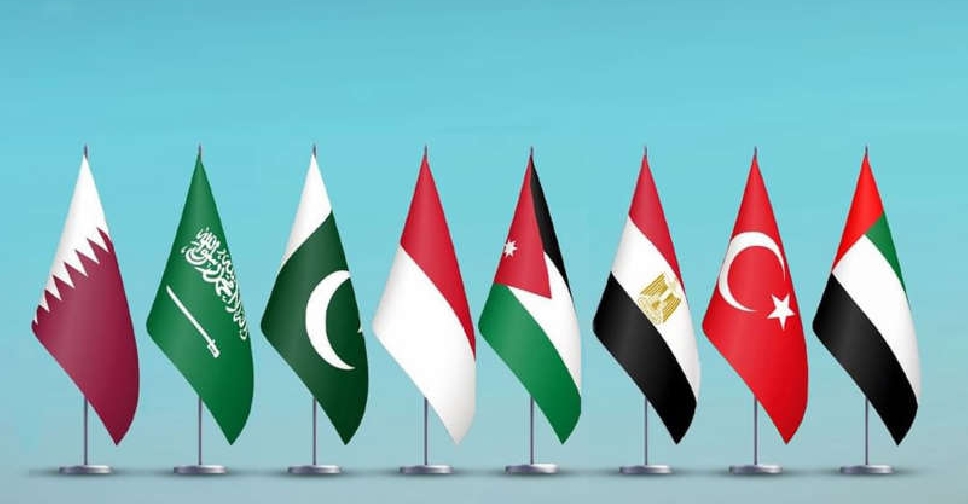 UAE joins 7 nations in condemning Israel's West Bank land registration plan
UAE joins 7 nations in condemning Israel's West Bank land registration plan
 Dubai Holding, Nord Anglia Education partner to develop new premium schools
Dubai Holding, Nord Anglia Education partner to develop new premium schools
 UAE President posts special message on Lunar New Year
UAE President posts special message on Lunar New Year
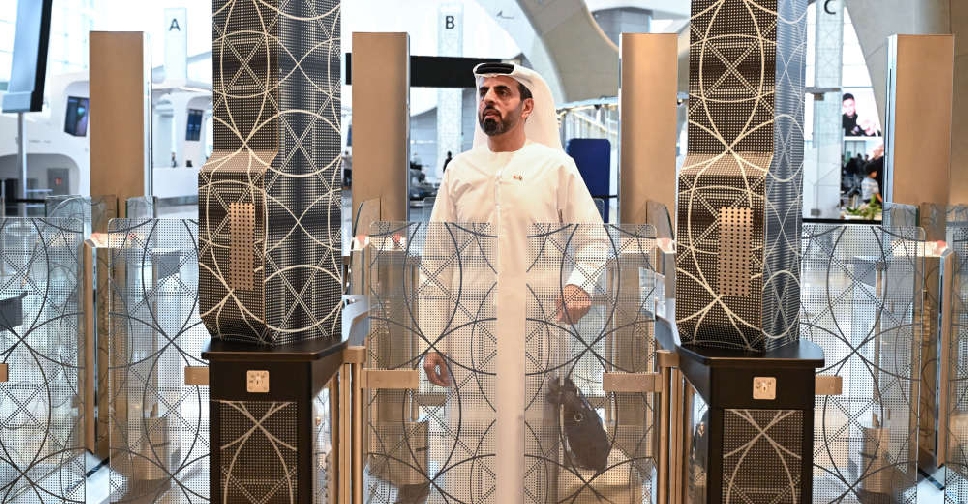 New UAE, Bahrain fast-track travel system takes off
New UAE, Bahrain fast-track travel system takes off
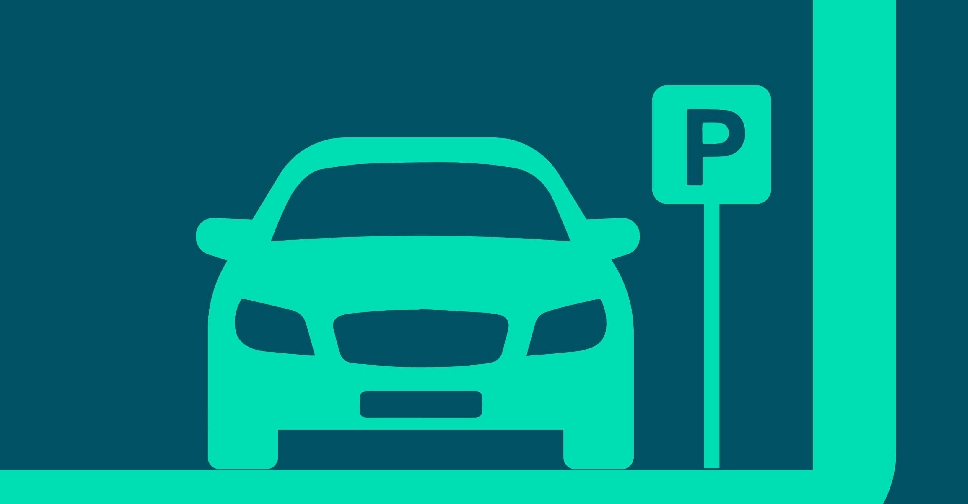 Dubai adjusts paid parking, Salik hours for Ramadan
Dubai adjusts paid parking, Salik hours for Ramadan
 Dubai's Al Jalila Foundation unveils cancer support fund
Dubai's Al Jalila Foundation unveils cancer support fund
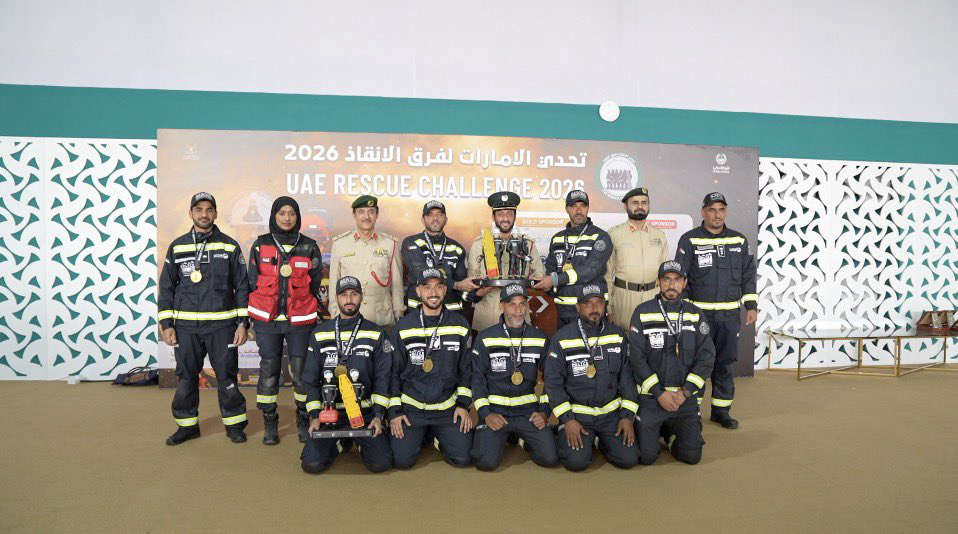 Dubai Police crowned champions of UAE Rescue Challenge
Dubai Police crowned champions of UAE Rescue Challenge
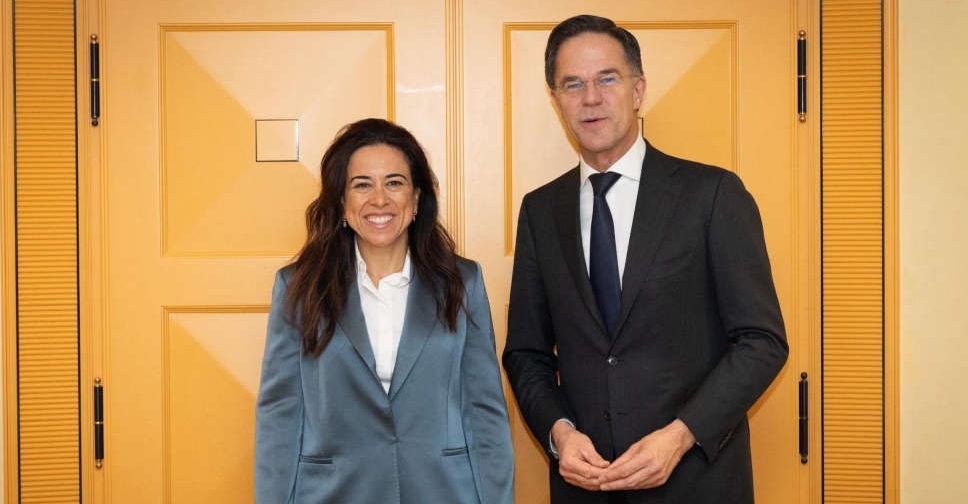 UAE discusses strengthening partnership with NATO
UAE discusses strengthening partnership with NATO
 Dubai Police urge vigilance against online begging
Dubai Police urge vigilance against online begging
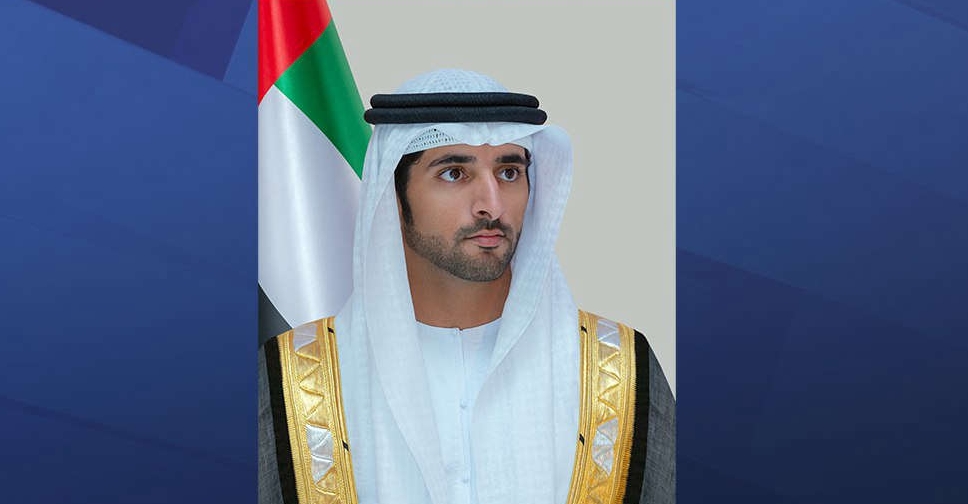 H.H. Sheikh Hamdan pays tribute to UAE's royal photographer
H.H. Sheikh Hamdan pays tribute to UAE's royal photographer
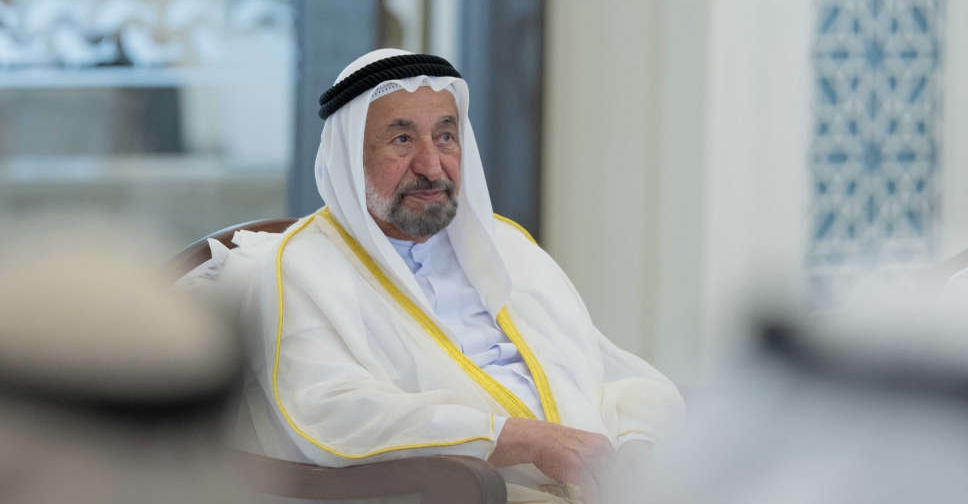 Sharjah approves over AED76 million in debt settlement for citizens
Sharjah approves over AED76 million in debt settlement for citizens
 H.H. Sheikh Hamdan awards Arab Hope Makers
H.H. Sheikh Hamdan awards Arab Hope Makers
 UAE looks into framework to regulate children's social media use
UAE looks into framework to regulate children's social media use
 UAE Ramadan moon-sighting committee to meet on Tuesday
UAE Ramadan moon-sighting committee to meet on Tuesday
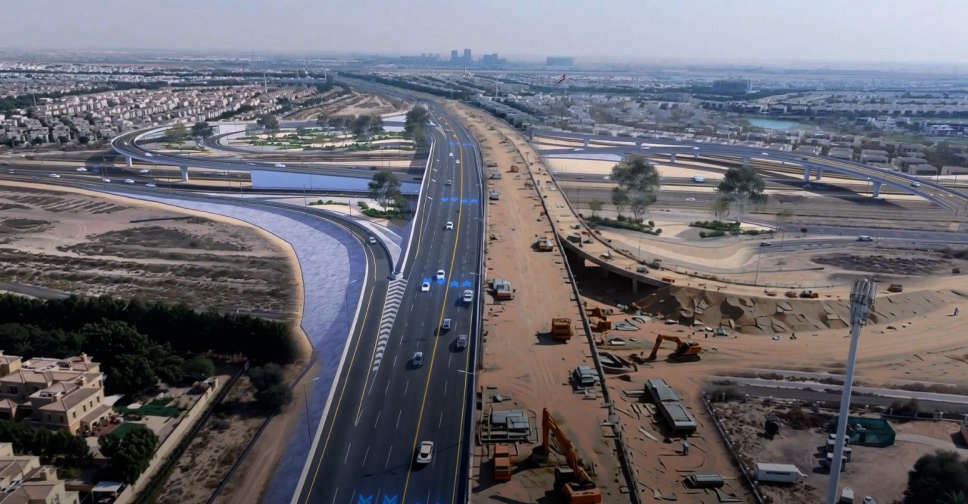 RTA opens second bridge at Al Qudra intersection
RTA opens second bridge at Al Qudra intersection
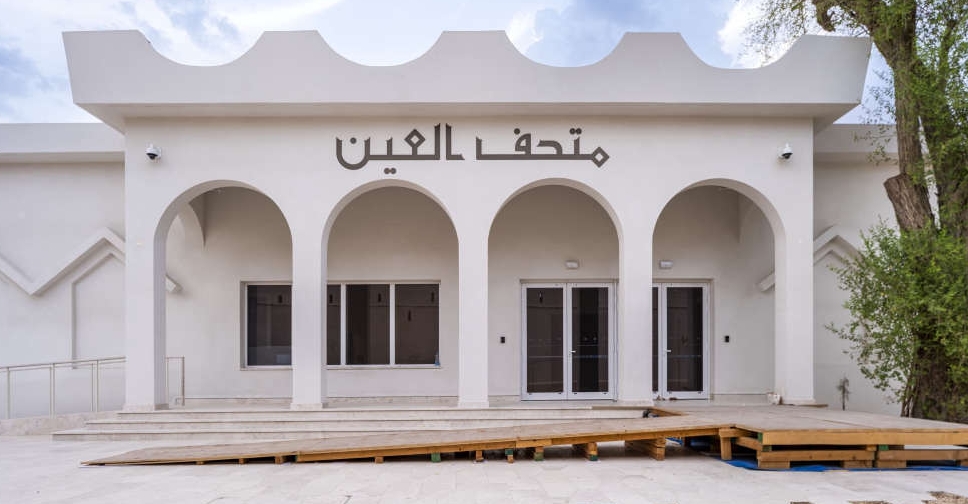 Abu Dhabi identifies over 40 modern heritage sites
Abu Dhabi identifies over 40 modern heritage sites
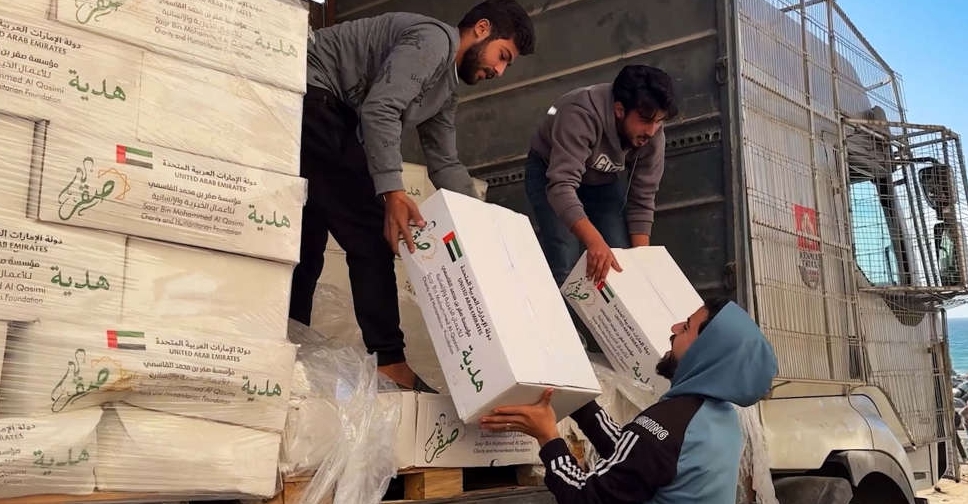 Distribution of aid from UAE's Saqr Humanitarian Ship begins in Gaza
Distribution of aid from UAE's Saqr Humanitarian Ship begins in Gaza
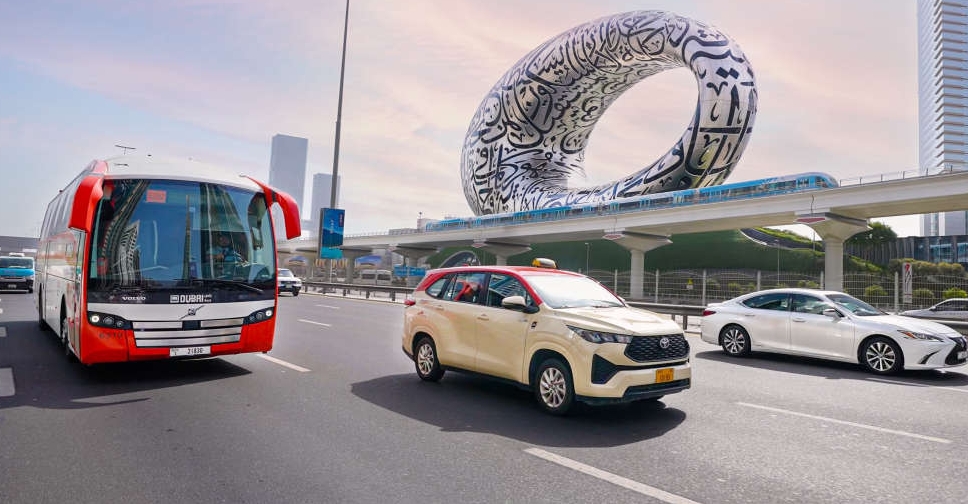 Dubai to expand bus and taxi lanes as public transport ridership grows by 7.4%
Dubai to expand bus and taxi lanes as public transport ridership grows by 7.4%
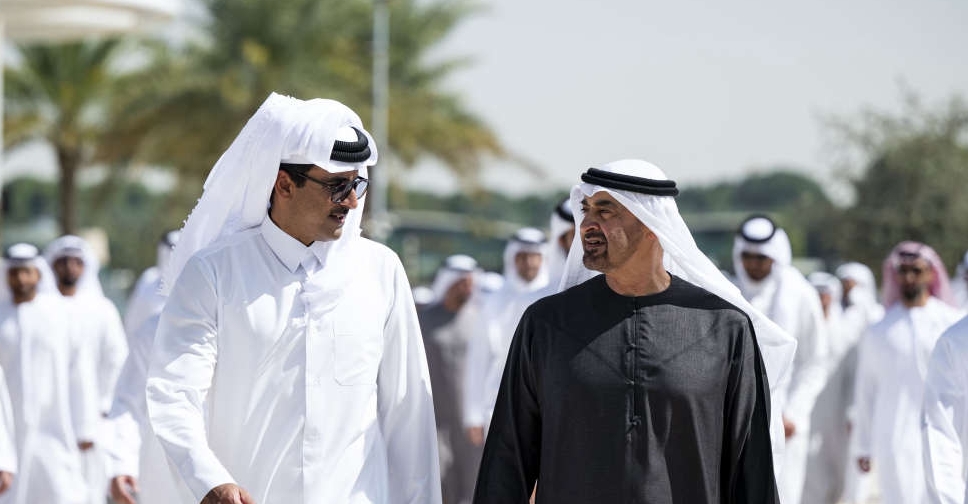 Emir of Qatar welcomed by UAE President on visit to Abu Dhabi
Emir of Qatar welcomed by UAE President on visit to Abu Dhabi
